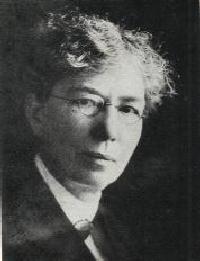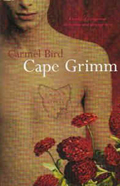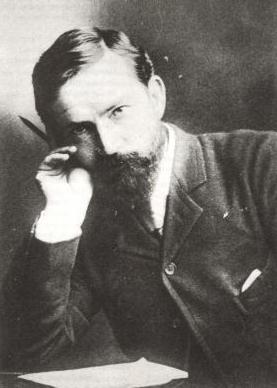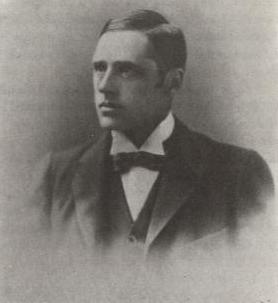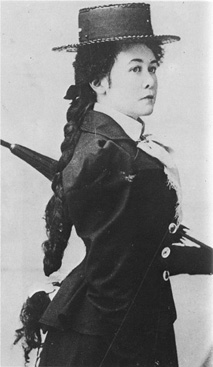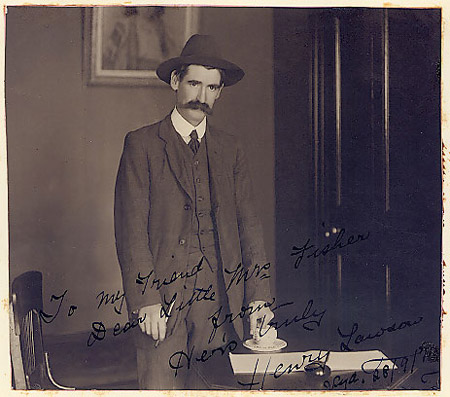I ain't no verse-'og. When I busts in song
An' fills the air wiv choonful melerdy,
I likes fer uvver coves to come along
An' biff the lyre in company wiv me.
So, when I sees some peb beguile an hour
Be joinin' in the chorus o' me song,
I never sees no use in turnin' sour;
Fer singin' days wiv no one larsts too long.
I'd like to see the Rocks an' Little Lon
Grow centres for the art uv weavin' rhyme,
Wiv dinky 'arps fer blokes to plunk upon,
An' spruiking poits workin' overtime.
I'd love to listen to each choonful lay
Uv soulful coots who scorn to write fer gain;
To see True Art bloom down in Chowder Bay,
An' Culcher jump the joint in Spadger's Lane.
Gawstruth! fer us life's got no joy to spare,
We're short uv bird songs, "soarin' clean an' pure."
A bloke is 'ardly orf the bottle there
Before 'e's in the jug - a bird fer sure.
So 'oo am I to say no blokes shall sing
Jist 'ow an' where an' when sich blokes may choose?
She's got no lines to show, nor yet no ring.
Lor' blim'me! I ain't married to me Muse!
An', square an' all, to show there's no offence,
To show that in me 'eart true friendship lies,
I gives free gratis, an wivout ixpense,
A few igzamples, just to put 'em wise.
First, choose some swingin' metre, sich as this,
That Omar used - per Fitz - to boost the wine.
An' 'ere's a point true artists shouldn't miss:
Sling in a bit o' slang to ev'ry line.
An' when yer full o' them alternate rhymes -
As all the true push poits is at times -
Jist ring the changes, as I'm doin' now;
An' find ixcuse to say: "The bloomin' cow!"
Or, comin' back to Omar's style again,
It's easy fer to pen a sweet refrain
Wiv this 'ere kist a dead-'ead sort o' line,
An' this one rhymin' wiv the former twain.
An' though this style me soul 'as often vext,
Wiv care an' pains the knack is easy cort;
This line's rhymed wiv the first, an' then the next
Is cut orf short.
An' if yeh want to round it orf orl neat
Just add a couplet 'ere of equil feet.
An' 'ere's a style I've very often done:
You swing orf 'ere, an' find a second rhyme,
Then hitch the third line to the leadin' one.
An' make the fourth lap wiv the second chime,
An' then you sort o' come another time,
An' jist end up the same as you begin.
It's orl dead easy when yeh know the way,
An' 'ave the time to practise it - But, say,
Although it sort o' takes the eye, no doubt
(An', mind yeh, I'm not sayin' but it may) -
Wivout a stock uv rhymes to see you out
This style o' rhymin's like to turn yeh grey.
The triplets comes much 'arder than the twins;
But I 'ave 'ad to bear 'em fer me sins.
'Ere, fer a single line, yeh change the style,
Switch orf an' rhyme the same as you begins;
An' then yeh comes back at it wiv a smile,
Pertendin' it's dead easy orl the while.
Them sawed-orf lines 'as often stood me friends;
Fer you kin cut 'em upto serve yer ends.
An' frequent I 'ave slung the dotin' throng
This sort o' song.
To ring su'prises on the eye an' ear
Is 'arf the game. It seems to be kind o' queer
The dull monotony. Yeh make a miss,
An' then do this.
Aw, 'Struth! it's pretty; but you take my tip,
It gives a bloke the everlastin' pip
'Oo tries to live upon the game and gets. . . .
Corns on 'is brain an' melancholy debts!
Wiv sweat an' tears, wiv misery an' sighs,
Yeh wring yer soul-case fer one drop of bliss
To give the cold, 'ard world; an' it replies,
"Prompt payment will erblige. Please settle this."
The rarest treasures of yer 'eart yeh spend
On callous, thankless coots; an' in the end
It comes to this: if you can't find a muse
'Oo takes in washin', wot's the flamin' use?
First Published in The Bulletin, 18 March 1915
